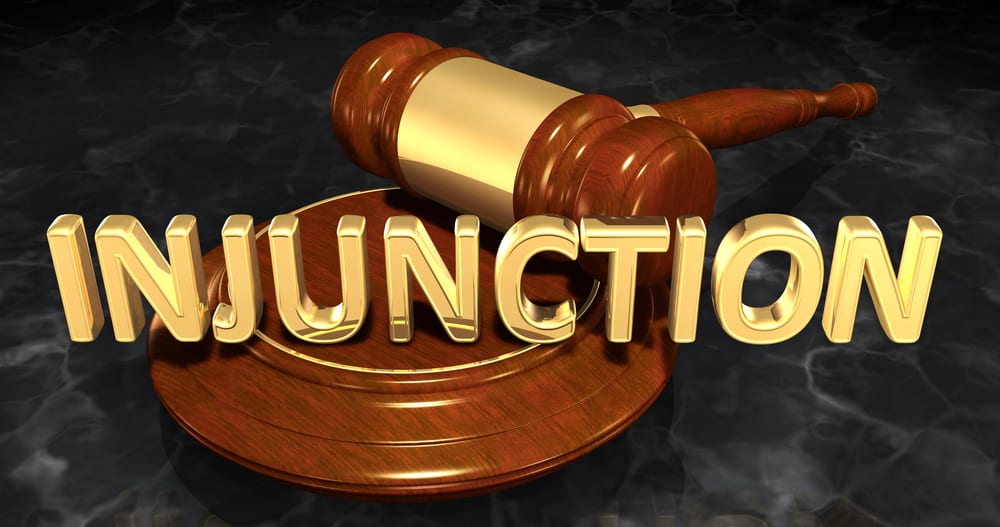
Dos and Don’ts After Being Served with an Injunction in Florida
Having an injunction served against you isn’t something that anyone expects or wants to deal with. If you’ve been blamed for a domestic violence offense, stalking, or another crime like kidnapping, it’s possible that you could have an injunction filed against you in the future. Or maybe you’ve already been informed that an injunction has been issued against you. If so, it’s possible that you might be facing the beginning stages of a criminal case. It’s an unsettling experience and one where you likely have questions about how to proceed and what to do next.
There are specific steps you can take to help or hurt your case in the future. The following explains the do’s and don’ts if you’ve received an injunction in Florida:
What You Should Do After an Injunction is Issued Against You
The most important thing to keep in mind if you’ve been issued an injunction is to stay calm and seek legal help. The things you should do to help your case include:
- Hire an Injunctions Attorney in Florida – A judge must sign off on an injunction that’s issued against you. If you’ve received one, it’s likely that this is just the beginning of your criminal case. Call an injunctions attorney as soon as possible to begin building your case for a strong defense.
- Invoke your right to the 5th Amendment – Anything that you say can be used against you. The prosecuting party will be looking for any reason to further build a case against you. Remain silent and only speak to your attorney about the occurrences.
Follow the terms outlined on the injunction – Even if the conditions seem to be unfair, you must follow the demands described on the order. Failing to do so can hurt your case. Remember, you’ll have your time in court when your lawyer can speak on your behalf.
- Go to your court hearing – During your trial, you’ll be able to explain your side of the story to the judge. That could be the only opportunity available to do so, and you want to be certain not to miss it.
Gather any evidence – Gathering text messages, voicemails, emails, and any other documentation that can be used as evidence to defend you will be helpful to your case.
What You Should Not Do After an Injunction is Issued Against You
There are actions you can take that can severely hinder your case and turn your situation from bad to worse. To ensure you have the most robust case possible, things you should not do include:
- Make contact with the petitioner – Contacting the petitioner or asking them to drop the injunction will make matters worse. By making contact, you’re breaking the law by disobeying the terms set in the order – which can land you in worse legal trouble. Do not reach out to the petitioner through a third party, either. That is also considered a violation of the injunction.
- Buy or own any weapons – Having weapons or a firearm is usually a violation of an injunction. Disregarding this can result in further criminal charges.
- Accept the injunction – You may not have a choice when the order is first issued against you, but if you skip your court hearing or make another type of mistake – you can forfeit your chance to fight it and unintentionally accept it. That’s why having legal counsel to guide you through this time is so important. Your attorney will be able to explain the consequences of actions that can hurt your case.
While this list of do’s and don’ts might seem easy to follow, when emotions are running high, they can be forgotten in the heat of the moment. Your injunctions lawyer will be able to help and guide you through the rest of your injunction case.
Call on the Florida Injunction Lawyers at Fighter Law Today
After an initial injunction is issued, remember that it’s temporary in most cases. You’ll have a court date where a judge hears your side of the story and your defense before proceeding further. That’s why it’s so crucial that you don’t take the case on your own and seek expert counsel.
Contact Attorney Thomas Feiter with Fighter Law to build a strong defense for you. He is Board Certified in Criminal Trial Law by the Florida Bar and has taken more than 100 jury trials to verdict. For a free consultation on your injunction case, contact him by completing an online form or by calling (407) FIGHTER (344-4837).
Share:
free case evaluation
Fill out the form below for an free evaluation of your case.
Categories
- Birth Injury
- Boating Accidents
- Car Accidents
- Civil Rights
- Criminal Defense
- Cyberstalking
- Divorce
- Dog Bite Injury
- Domestic Abuse Charges
- Domestic Violence
- Drug Charges
- DUI Charges
- Family Law
- Felonies
- Fighter Law Firm
- Firearms
- Firm News
- Guardianship
- Injunction Removal
- Injunctions
- Marketing
- Personal Injury
- Repeat Violence Injunction
- Restraining Order
- Seal and Expunge
- Sex Crimes
- Slip and Fall
- Stalking Injunction
- Theft and Robbery
- Traffic tickets
- Uncategorized

